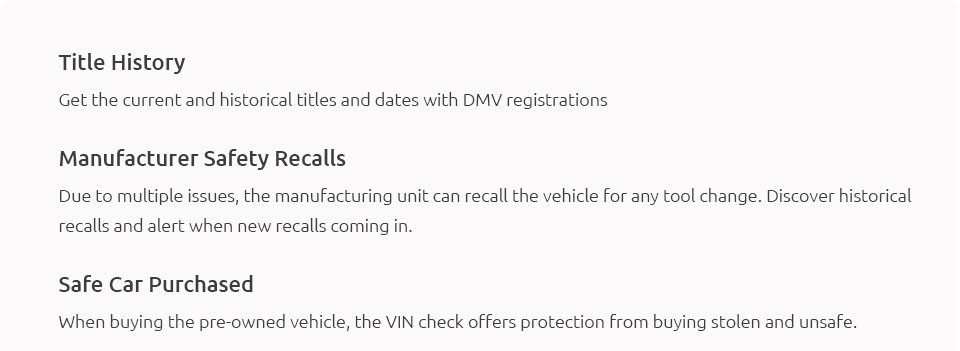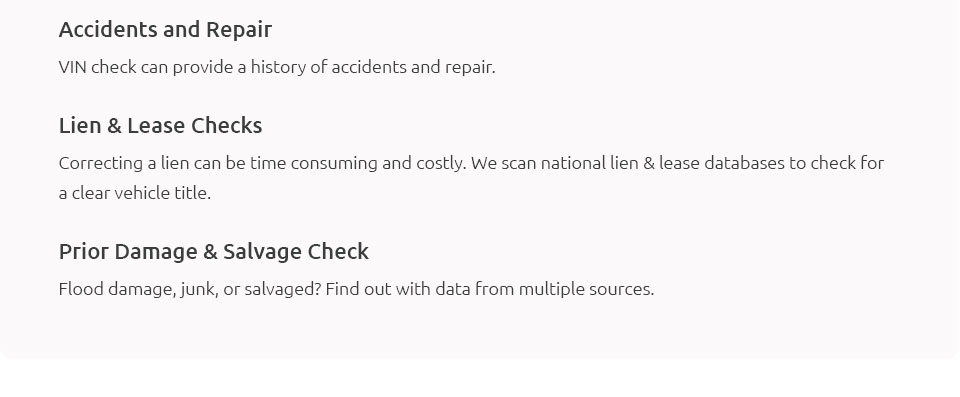 |
 |
 |
||
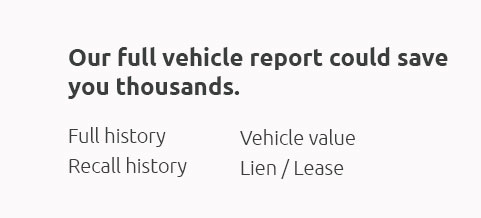 |
 |
|
 |
||
 |
 |
 |
 |
||
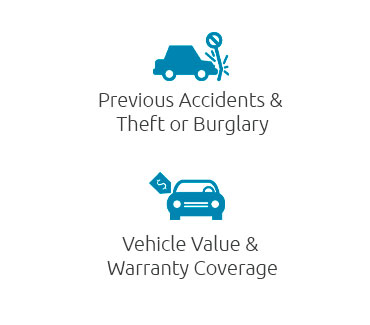 |
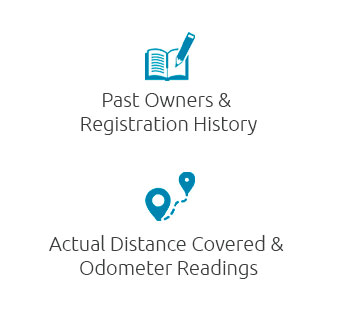 |
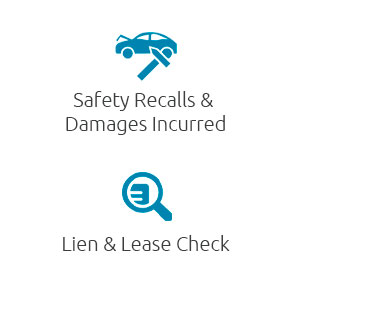 |
 |
 |
||||
|
||||
 |
Understanding the Importance of 'Look Up My VIN'In the vast and intricate world of automotive ownership, one term that frequently arises, yet often remains misunderstood, is the Vehicle Identification Number, commonly referred to as the VIN. As a unique fingerprint for vehicles, the VIN holds a wealth of information that can be crucial for various reasons. But how does one effectively utilize this sequence of numbers and letters, and what should one consider when doing so? To begin with, the VIN serves as a fundamental tool for car buyers, sellers, and even owners looking to delve deeper into the history of their vehicles. When you decide to look up your VIN, you're essentially unlocking a gateway to a vehicle's past, present, and potential future. This process is not just about satisfying curiosity but about making informed decisions. For instance, a VIN lookup can reveal vital details such as previous accidents, recall history, or even mileage discrepancies that might otherwise go unnoticed. Consider this: you're in the market for a used car, and you've found what seems to be the perfect fit. The price is right, the model is appealing, and the seller seems trustworthy. However, without conducting a thorough VIN check, you could be stepping into a quagmire of hidden issues. The VIN can alert you to major red flags that might affect the vehicle's value or safety, such as structural damage from past collisions or unresolved safety recalls. Key Considerations for a VIN Lookup
In addition, understanding the structure of a VIN can empower you as a consumer. The 17-character string is more than just a random assortment; each segment holds specific information, from the country of manufacture to the vehicle's unique serial number. This granularity allows for precise identification and can aid in verifying the authenticity of a vehicle. From a broader perspective, the ability to 'look up my VIN' reflects a shift towards greater transparency and empowerment for consumers in the automotive market. It underscores the importance of due diligence and the proactive measures that can safeguard both financial investments and personal safety. As technology advances, the ease of accessing and interpreting VIN data will likely improve, making it an even more integral part of vehicle ownership. In conclusion, whether you're buying, selling, or simply maintaining a vehicle, the VIN is an indispensable resource. It not only encapsulates the history of a vehicle but also protects you from potential pitfalls. Therefore, the next time you think about your car's identity, remember that a simple VIN lookup can be your best ally in navigating the complexities of automotive ownership. https://www.reddit.com/r/VINwiki/comments/mr3jj8/any_way_to_find_a_cars_vin_from_a_license_plate/
Any way to find a car's vin from a license plate which is no longer registered to the car? I'm looking for a 2009 or earlier Aston Martin ... https://www.reddit.com/r/OSINT/comments/pl3mve/is_there_any_good_free_vin_lookup_to_find_an/
Comments Section ; UpstateRedneck - I talked to a guy who my mom thinks is stalking her and he said he's a repo guy but nun of our vehicles are up ... https://www.quora.com/How-do-you-look-up-a-vehicle-identification-number-VIN-by-state
Can anyone find the owner of the vehicle by VIN number online? Yes. Pay a visit to any VIN check USA site and get this information easily. Print ...
|

